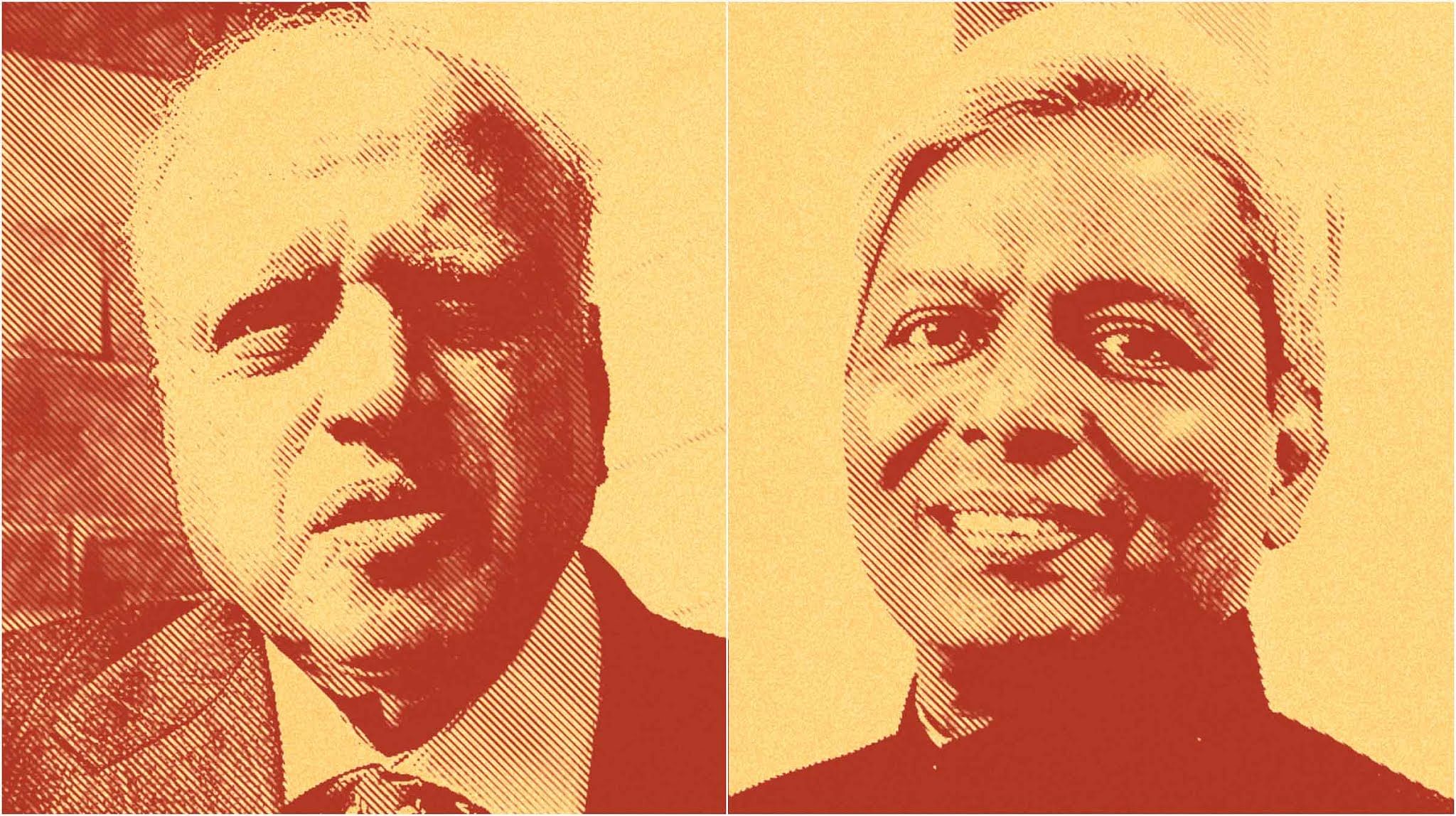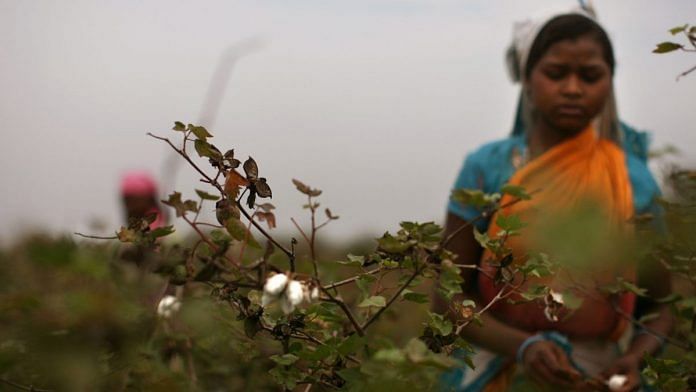P.C. Kesavan and M.S. Swaminathan authored a highly controversial review of GM crops that has been now been pulled off Current Science.
Bengaluru: Two famed biotechnologists – including M.S. Swaminathan, the father of India’s Green Revolution – have come in for severe flak from fellow experts for an article they wrote criticising genetically modified (GM) crops, so much so that the article has been taken down after its “flaws” were widely highlighted.
The article by P.C. Kesavan, a geneticist and radiation scientist famous for his work on caffeine and his social causes, and Swaminathan was published in the journal Current Science late last month.
The review was instantly criticised as “pseudoscientific” by researchers and scientists across the country, with developmental biologist and neurogeneticist K. VijayRaghavan, the principal scientific adviser to the Modi government, calling for a scientific rebuttal.
It is sad that Prof. M.S. Swaminathan, who has contributed to India# through green revolution, knows the value of biotech more than most people, is now pandering to the anti-GMO crowd, sounding more like Vandana Shiva! Not sure if he really means this?https://t.co/JN39VQ8RLB pic.twitter.com/iRq7gu1b5R
— Channa Prakash (@AgBioWorld) November 29, 2018
Just saw this. The Kesavan and Swaminathan ’Review’ is deeply flawed and full of errors. Needs scientific rebuttal. https://t.co/1pX4yz2bxF
— K. VijayRaghavan (@kvijayraghavan) December 3, 2018
Several rebuttals were subsequently published and the review has since been taken down after Swaminathan, 93, expressed his frustration at being criticised for the article, for which he claims to have written only the first and last paragraphs.
Contents of the paper
GM crops are plants that have been reared with the genes of another species to reflect or temper certain characteristics.
In the review paper, GM crops like Bt Cotton – modified to make it insect-resistant – had been termed “failures”.
It said “hybrids… are exorbitant compared to non-GE seeds”, adding that “resource-poor small and marginal farmers are not able to withstand financial losses, especially if the crops fail for whatever reason”.
“The site of insertion of exogenous DNA into the recipient genome is at random, and not controllable…” it said. “In many GE organisms, ‘unintended’ effects raising health safety concerns have been and are being encountered.”
The review also alleged collusion by regulators to further the interests of GM seed manufacturers.
“…Multinational corporations are running ahead of the science to drive this technology of genetically modified organisms (GMOs), and colluding with regulators,” it said.
“As of now, the ground reality is that…no science-based and rigorous biosafety protocols and evaluation of GM crops are in place”.
“There is no doubt that GE Bt-cotton has failed in India: It has failed as a sustainable agriculture technology and has therefore also failed to provide livelihood security of cotton farmers who are mainly resource-poor, small and marginal farmers,” it said.
“Both Bt- and herbicide-tolerant (HT) crops are now proven to be unsustainable agricultural technologies,” it added.
Also read: Throttled by activists at home, Indian GM seed firms find great demand overseas
‘Evidence omitted’
When principal scientific adviser VijayRaghavan called the review “deeply flawed” on Twitter, Swaminathan wrote him an email in a bid to clarify his stance on GM crops.
Swaminathan wrote that, although the review may suggest otherwise, he was not opposed to GM crops, only concerned about their sustainability.
“Technology always creates divergent viewpoints,” he wrote. “This is why it is important to have a transparent regulatory mechanism which is supported by professionals, government departments and the private sector.”
“Genetic modification is the technology of choice for solving abiotic problems like drought flood, salinity etc,” he added. “It may not be equally effective in the case of biotic stresses since new strains of pests and diseases arise all the time.”
“I have always said that the green revolution should not become a greed revolution and therefore we should ensure that the long-term productivity of the soil and water also becomes a part of the technology,” he wrote.
In his reply, VijayRaghavan outlined aspects of the review that he saw as wrong, and said such inaccurate pieces worked to the detriment of the scientific temper.
He explained how several arguments in the review were based on a selective use of data, with contradictory evidence omitted.
The review, for example, cites as an example of GM crops’ failure the Flavr Savr tomato of Calgene Company, the first such crop to be introduced in the US. Introduced in the late 1990s, it was withdrawn because of stomach lesions observed in rats. Another example is Beltsville pork, which was withdrawn as well.
However, the review fails to mention all the GM crops that continue to be consumed and commercialised in the US, including corn, soybean, potato, and more. Most of them are used for human consumption and not just as animal feed.
GMO researcher Devang Mehta told ThePrint that Bt Cotton, which Kesavan called a failure, has actually improved farmer yields by 24 per cent, increased farmer profits by 50 per cent, and decreased insecticide use by 30 per cent.
“The bulk of the scientific points made [about GM crops]… have been raised previously and… scientifically discredited widely,” VijayRaghavan wrote in his mail to Swaminathan, while flagging the “extraordinary generalisations” made about the Indian regulatory system.
“Critical analysis and criticism is always welcome. But, gratuitous generalisations undermine years of work and, more importantly, cause deep and lasting damage to entire areas of research…” he added.
“Today’s world is at a tipping point… Difficult local and global decisions have to be taken by the peoples of the world… Neither the hubris of technologies nor the blanket denial of their roles makes sense,” he said.
Replying back, Swaminathan said he was “sorry that an article which was supposed to encourage relevant…research should become a matter of confusion and controversy”.
India and GM crops
GM crops remain controversial in India over divergent reports about their efficacy.
“There is context to every decision and every disagreement, and GM crops must also be viewed in this context,” VijayRaghavan told ThePrint. All these subjects are nuanced, he added, and sweeping generalisations are not helpful.
“The issue isn’t whether I or the government are for or against GM foods,” he said. “It isn’t that simple… The complexity of each matter requires in-depth examination of all surrounding contexts. This is true for GM crops as it was true for wheels and chainsaws, and all human interventions.”
He said each genetic modification is different, and clubbing all GM crops together —the way the Current Science review did — did not allow for an efficient understanding or evaluation of the subject.

In India, scientific committees evaluate the science, safety, and implications of a GM crop and provide their views to the environment minister. The minister will then take a call based on other factors. State governments have to decide for themselves, based on local regulation.
Two crops are currently awaiting commercial release in India. Bt Brinjal has undergone extensive testing and field trials, but was prevented from release. The other, GM mustard, has the potential to act as a substitute for enormous amounts of oil we import. Imported oil itself is mostly genetically modified, pointed out VijayRaghavan.
The key is sustainability without long-term damage.
“As humans, since the dawn of agriculture and domestication of animals, we have…inadvertently taken several decisions without evaluating how they affect the planet,” said VijayRaghavan.
“Everything we do requires energy and fuel, and we haven’t looked at the consequences of our actions. Our planet is at a tipping point and requires joint action now.”
In this context, VijayRaghavan added, simply looking at a technology through the lens of whether it is good or bad for humans was a narrow view.
“…If people do not want something, that’s okay. But they have to be aware that it causes environmental and economic losses,” he added.
The primary argument against GM crops, apart from the corporate monopoly over seeds and alleged financial burden on farmers, seems to be the “amplification” of GM crops and how fast they spread.
“Anything we alter or introduce into the environment will have its own consequences,” said VijayRaghavan. “Some amplifications can become invasive. And some invasive species are beneficial while some are not. But these can be measured and curbed.
If the concern is that a crop will wipe out everything else, we can always prevent it from doing so,” VijayRaghavan said, “If the concern is that the original strain of the crop will disappear, we can preserve it.”
“None of these solutions is a magic bullet…They are one of several options,” he added.
Also read: Cancer fighting genetic tool ‘Crispr’ is now being used for improving quality of crops




Vijayaraghavan is, to put it mildly, being eminently political, obtuse and seems to be massaging the truth.
GM is not a technology, but is an economic and social weapon for taking away the fruits of the farmers’ labor. Instead of investigating this truth, people like vijayaraghavan want to throw dust in people’s eyes through selective arguments about things in general and things in specific.
Let people like him be a part of a few 10 year studies on how GM crops have improved lives, following which we are free to evaluate his claims. The perks of speaking for the government cannot exclude being responsible.
Devang Mehta, you are wrong by risking public life when supporting GM crops. Thus creating a mindset of fear with out GM crops, that crop will fail, we won’t get any food. The GM brinjal we taste no longer is tasty, good as we used to eat in good old times. GM has killed good brinjal and it’s natural taste. GM should be used temporarily but never as permanent replacement to natural food. Devang, your thoughts doesn’t reflect my scientific thoughts, myself worked in agriculture field for years. You should stop showing favouritism and spreading fear. Swaminathan is correct because he has explanation and we practically found his words true.